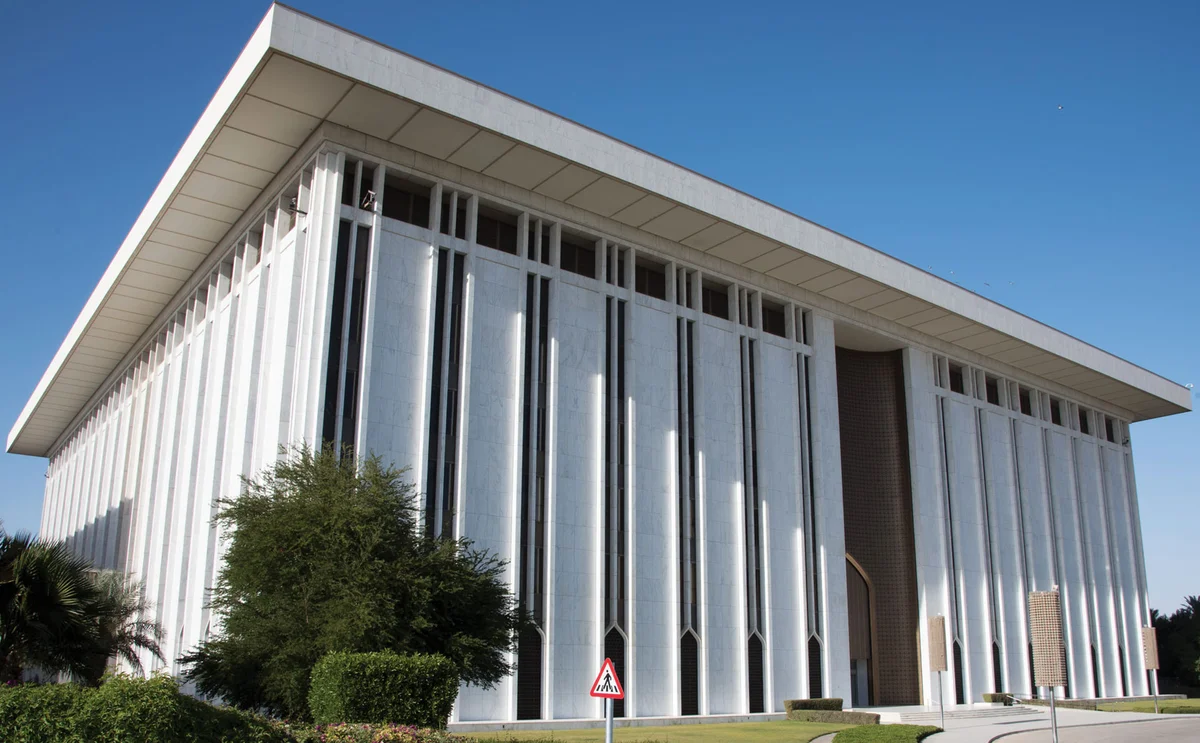The Middle East has emerged as one of the fastest-growing markets for financial technology (fintech), with digital innovation reshaping the region’s financial industry. Once dominated by traditional banking institutions, the Middle East’s financial landscape is now experiencing a transformation driven by fintech startups and technology-driven solutions. From digital payments and peer-to-peer lending to blockchain and cryptocurrency, fintech is revolutionizing how businesses and consumers access and interact with financial services.
This article explores how fintech is reshaping the Middle East’s financial industry, the key factors driving this transformation, and the future of financial services in the region.
1. The Rise of Digital Payments and Cashless Economies
One of the most significant impacts of fintech in the Middle East has been the rapid adoption of digital payments. Traditionally, many Middle Eastern countries have relied on cash-based transactions, with relatively low penetration of credit cards and digital payment solutions. However, the rise of fintech has accelerated the region’s shift toward a cashless economy.
a) Mobile Wallets and Contactless Payments
Mobile wallets and contactless payment solutions have gained widespread popularity, particularly in markets like the UAE and Saudi Arabia. Fintech companies such as PayTabs, Beehive, and Telr have introduced seamless digital payment solutions that enable individuals and businesses to make instant transactions through smartphones and online platforms.
For example, PayBy, a UAE-based fintech startup, has developed a secure mobile wallet that allows users to pay for goods and services through QR codes, contactless payments, and peer-to-peer transfers. These fintech solutions have been further accelerated by the COVID-19 pandemic, as consumers and businesses sought safer, contactless payment methods.
Governments are also promoting the shift to digital payments as part of their broader economic diversification strategies. The Saudi Arabian Monetary Authority (SAMA) has set ambitious targets to achieve 70% cashless transactions by 2030 as part of its Vision 2030 goals. In the UAE, digital payment solutions are part of the government’s Smart Dubai initiative, which aims to make Dubai a global leader in digital transformation.
b) Financial Inclusion and Access
Fintech is also playing a key role in enhancing financial inclusion across the Middle East. In many parts of the region, particularly in rural and underserved areas, traditional banking services have been limited. Fintech companies are filling this gap by providing access to digital banking services for unbanked and underbanked populations.For example, fintech platforms like NOW Money are providing low-income workers in the UAE with access to mobile banking services, enabling them to receive wages digitally and send remittances to their home countries. These innovations are helping to expand financial access and improve the quality of life for millions of people across the region.
2. Peer-to-Peer Lending and Alternative Financing
Fintech is also transforming how individuals and small businesses access financing. Peer-to-peer (P2P) lending and crowdfunding platforms are providing alternatives to traditional bank loans, offering more flexible and accessible financing solutions for startups and SMEs (small and medium-sized enterprises) across the Middle East.
a) Crowdfunding and P2P Lending Platforms
Platforms like Beehive in the UAE and Liwwa in Jordan have created opportunities for individuals and businesses to borrow and lend money directly, bypassing traditional banking institutions. These fintech platforms use innovative risk assessment models to evaluate borrowers, providing faster approval and lower interest rates compared to conventional banks.
Beehive, for instance, has facilitated millions of dollars in loans to SMEs, enabling businesses to access working capital, expand operations, and pursue growth opportunities. This democratization of finance is providing startups and entrepreneurs with the funding they need to succeed, which has historically been challenging in the region due to stringent lending criteria from traditional banks.
b) Shariah-Compliant Fintech
In the Middle East, the rise of Shariah-compliant fintech is a significant trend. Islamic finance, which prohibits interest-based lending and emphasizes ethical financial practices, is being incorporated into fintech solutions. Platforms like Rain, a Bahrain-based cryptocurrency exchange, and Wahed Invest, an ethical investment platform, are offering Shariah-compliant investment and financing options to meet the growing demand for Islamic financial products in the region.
Shariah-compliant fintech allows Muslims to participate in digital finance in a way that aligns with their religious values, opening up new opportunities for financial inclusion and market growth.

3. Blockchain and Cryptocurrency: Transforming Finance
Blockchain technology and cryptocurrencies are playing a transformative role in the Middle East’s financial sector, offering secure, decentralized, and efficient solutions for transactions, asset management, and data security. While blockchain’s impact is still in its early stages, several governments in the region are exploring its potential to revolutionize financial services, supply chains, and public administration.
a) Cryptocurrency Adoption
Cryptocurrency adoption in the Middle East has gained significant momentum, with countries like the UAE, Bahrain, and Saudi Arabia leading the way in embracing digital currencies. Bahrain, in particular, has positioned itself as a hub for cryptocurrency and blockchain innovation, with the Bahrain Central Bank issuing licenses for cryptocurrency exchanges such as Rain.
In the UAE, ADGM (Abu Dhabi Global Market) and the Dubai Multi Commodities Centre (DMCC) have launched regulatory frameworks to support cryptocurrency businesses, creating a conducive environment for blockchain-based financial services.
The increasing adoption of digital currencies is providing more efficient and transparent payment solutions for cross-border transactions and remittances, which are critical for the Middle East’s large expatriate population.
b) Blockchain in Banking and Finance
Blockchain technology is also being integrated into traditional banking and finance systems. The UAE, for example, launched the Emirates Blockchain Strategy 2021, which aims to use blockchain to enhance the efficiency of government and financial services. Banks like Emirates NBD and ADCB are exploring blockchain applications for cross-border payments, smart contracts, and identity verification, offering more secure and transparent services.
Blockchain technology’s ability to reduce fraud, lower transaction costs, and increase transparency is particularly beneficial for sectors like real estate, insurance, and trade finance.
4. Open Banking and Fintech Ecosystem Growth
The introduction of open banking is another game-changer in the Middle East’s financial industry. Open banking allows third-party fintech companies to access banking data via APIs (Application Programming Interfaces), enabling them to develop new financial products and services.
a) Open Banking in Saudi Arabia and Bahrain
Saudi Arabia and Bahrain are leading the region in adopting open banking frameworks. The Saudi Central Bank (SAMA) has launched its open banking initiative as part of the country’s Vision 2030 strategy, aiming to increase competition and innovation in the financial sector. Similarly, Bahrain’s Central Bank has established a comprehensive regulatory framework for open banking, making the country a regional hub for fintech innovation.
With open banking, fintech startups can offer personalized financial services, such as budgeting tools, investment platforms, and payment solutions, directly integrated with users’ bank accounts. This opens new avenues for innovation and creates a more competitive financial ecosystem.
b) Fostering a Fintech-Friendly Environment
Governments across the region are actively fostering fintech ecosystems by creating regulatory sandboxes, incubators, and accelerators to support fintech startups. For example, FinTech Hive at the Dubai International Financial Centre (DIFC) and Hub71 in Abu Dhabi offer startups mentorship, funding, and access to financial institutions, allowing them to test and scale innovative solutions.
By promoting fintech-friendly policies and providing a supportive environment for startups, the Middle East is attracting investment from global fintech firms and positioning itself as a leader in financial innovation.

5. Regulatory Challenges and Opportunities
While fintech is transforming the Middle East’s financial industry, regulatory challenges remain. The rapid development of fintech solutions has outpaced existing regulatory frameworks, necessitating new regulations to ensure consumer protection, data privacy, and security. Countries like the UAE, Saudi Arabia, and Bahrain are working to develop comprehensive regulations that support fintech innovation while maintaining financial stability.
a) Regulatory Sandboxes
Regulatory sandboxes, such as those launched by SAMA in Saudi Arabia and Bahrain’s Central Bank, provide fintech startups with a controlled environment to test new products and services under regulatory supervision. These sandboxes are critical for balancing innovation with risk management, as they allow regulators to evaluate the impact of new technologies before widespread implementation.
As the region continues to adopt fintech solutions, clear and supportive regulatory frameworks will be essential for building trust among consumers and encouraging further innovation.
6. The Future of Fintech in the Middle East
The future of fintech in the Middle East is bright, with the region expected to see continued growth in digital banking, blockchain, and cryptocurrency adoption. The Middle East’s young, tech-savvy population and high smartphone penetration rates will drive demand for innovative financial services, while government support and regulatory advancements will enable fintech startups to flourish.
Artificial intelligence (AI), machine learning, and data analytics will play increasingly important roles in the fintech landscape, offering personalized banking services, improved risk management, and enhanced customer experiences. Additionally, the rise of super apps, combining multiple services into a single platform, will further transform how consumers interact with financial products.
Conclusion
Fintech is reshaping the Middle East’s financial industry by driving the shift toward cashless economies, expanding financial inclusion, and introducing innovative solutions in lending, payments, and blockchain. As the region continues to embrace digital transformation and support fintech ecosystems, it is well-positioned to become a global leader in financial innovation.
Image Courtesy Notice
At The Storiez, we value the efforts of photographers, artists, and content creators. The images featured in our articles are sourced from various news portals and online websites. We strive to ensure proper credit is given wherever possible. If you are the rightful owner of any image used here and would like to request its removal or correct attribution, please feel free to contact us. We respect intellectual property rights and aim to address concerns promptly.

